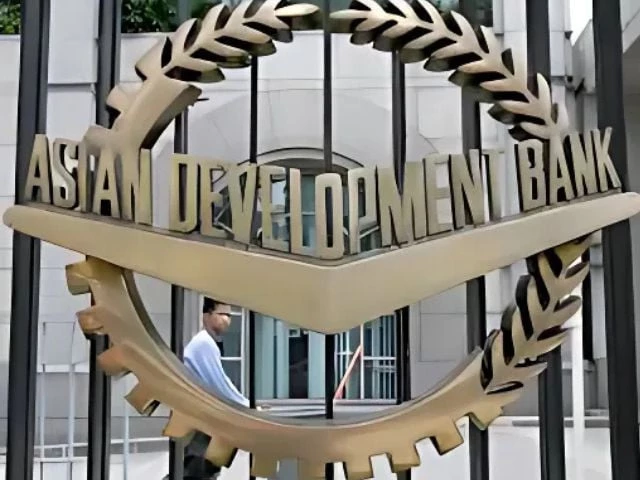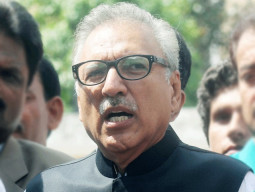
The Asian Development Bank (ADB) on Tuesday approved an $800 million financing package for Pakistan to enhance tax collection and provide guarantees for securing foreign commercial loans by rejecting Indian objections.
The Manila-based lender protected its neutrality by refusing to allow the use of the platform for settling political score by India. The ADB was under pressure from India not to approve the financing package but Pakistan being the founding member has all the rights to secure loans by fulfilling the agreed conditions.
The ADB's local office announced on Tuesday that the lender approved an $800 million programme to strengthen fiscal sustainability and improve public financial management in Pakistan.
The lender stated that the $300 million loan was approved for the Improved Resource Mobilisation and Utilisation Reform Programme and the first-ever policy-based guarantee of up to $500 million had also been approved, which was expected to mobilise financing of up to $1 billion from commercial banks.
It was the second time in the past three weeks that India failed to block Pakistan's external loans, first in the International Monetary Fund (IMF) and then in the ADB.
The Indian executive director tried to block the funding on political grounds. The Pakistani executive director apprised the board that India was financing terrorism in Balochistan and Khyber Pakhtunkhwa, according to the Pakistani authorities.
The development came after India had earlier managed to postpone the approval of the $800 million financing package by the ADB for Pakistan for five days by exploiting a lacuna in the rules.
The Pakistani authorities said that the Indian executive director raised the issues of high indebtedness of Pakistan and alleged that the money could be used for other than the stated purposes. The Pakistani executive director replied that India's debt was unsustainable compared to Pakistan. The Indian debt-to-GDP was 80.4% of GDP compared to Pakistan's 73.6%, according to the IMF's data.
The Pakistani executive director apprised the board that India was fuelling terrorism in Pakistan by providing funding to the terrorists in Balochistan and Khyber-Pakhtunkhwa (K-P).
On the point of using the ADB's funding for other than intended purposes, the board was apprised that raising such questions was tantamount to pointing fingers at the lender's financial management and showed lack of trust.
The board was informed that Pakistan had necessary means and resources to protect its national integrity and it had proven it during the four-day war last month.
Pakistan downed six Indian jet fighters, including Rafaels, during the conflict. The Indian chief of defence staff admitted last week that Pakistan did shoot down Indian jets but he did not disclose the number and the name of the planes.
The ADB board was also apprised that Kashmiris were fighting for their right to self-determination and India should not blame Pakistan.
Prime Minister's Narendra Modi's war hysteria has brought over seven-decade old unresolved issue of Kashmir into the global political and economic discourse. However, Pakistan needs to put its economic house in order by minimising reliance on foreign lenders and consultants. Many Indians work in these multilateral institutions.
There is now a high time that the government should reduce its reliance on the foreign loans, particularly on budget support loans. The ADB's $800 million package is not meant for any development purposes and the money and guarantees will be used to build the foreign exchange reserves.
The government had reached an understanding with two foreign commercial banks for a $1 billion loan on the back of the ADB's guarantees due to its low credit rating. The final term sheet and loan disbursement are subjected to the approval of the ADB's $500 million guarantee.
Pakistan's gross reserves stand at $11.5 billion, which the government wants to increase to over $14 billion by the end of June. The ADB will charge a nominal upfront fee for giving the guarantee.
Despite a recent rating upgrade, Pakistan's credit rating still remains low at B-Negative, which is two notches below the investment grade. Fitch upgraded Pakistan from a substantial default risk to a high risk of default rating.
The ADB's $300 million policy loan is the second tranche under the Resource Mobilisation Programme, which the government wants to take for improving the tax collection by the Federal Board of Revenue (FBR). Pakistan had met all the prior conditions for securing the second loan tranche from the ADB.
"Pakistan has made significant progress in improving macroeconomic conditions," said ADB Country Director for Pakistan Emma Fan. She added that the new $300 million programme backed the government's commitment to further policy and institutional reforms that would strengthen public finances and promote sustainable growth.
"The programme supports far-reaching reforms to improve tax policy, administration, and compliance, while enhancing public expenditure and cash management," stated the ADB. "It also promotes digitalisation, investment facilitation, and private sector development," it added.
These measures aim to reduce Pakistan's fiscal deficit and public debt, while creating space for social and development spending. The ADB said that the new programme is underpinned by a comprehensive support package — including technical assistance and close coordination with development partnersdesigned to help Pakistan build long-term fiscal resilience and stability.







1725362185-0/Untitled-design-(11)1725362185-0-270x192.webp)

















COMMENTS
Comments are moderated and generally will be posted if they are on-topic and not abusive.
For more information, please see our Comments FAQ